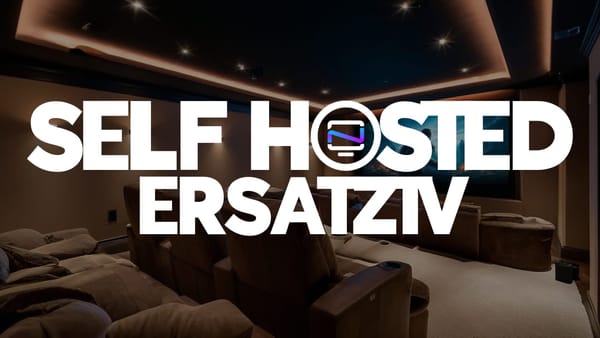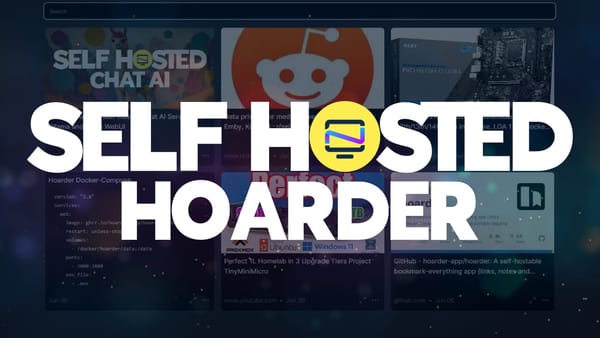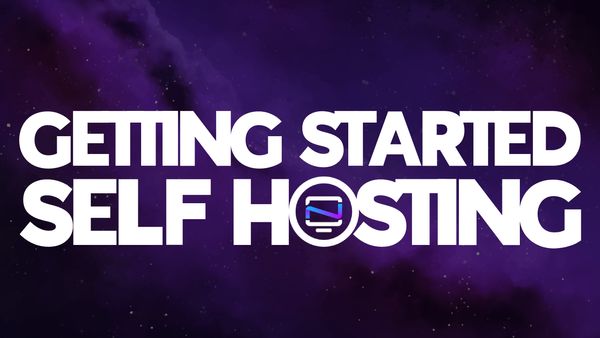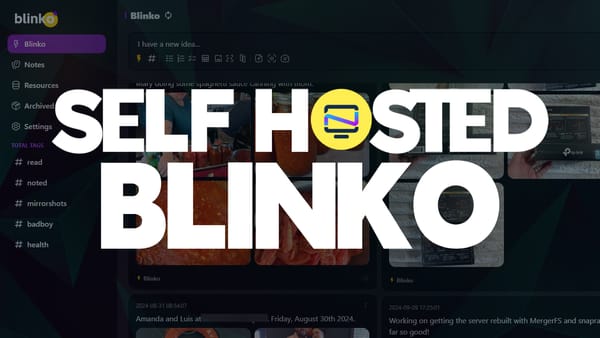What Self-Hosted Apps can you not live Without in 2024?
It's time to take another tour of my self-hosted apps and the hardware we host them on.

Like Noted, most of the self-hosted apps I use are being hosted on an Intel NUC. This small but powerful mini PC is more than sufficient for the job and has been trucking away now for almost 3 years 24/7.
As a self-hosting enthusiast, I rely heavily on Proxmox to manage some containers and applications both locally and remotely. Not all the apps I host are running on Proxmox but the most important ones are due to the ability to easily create snapshots and implement Proxmox Backup Server for backups.
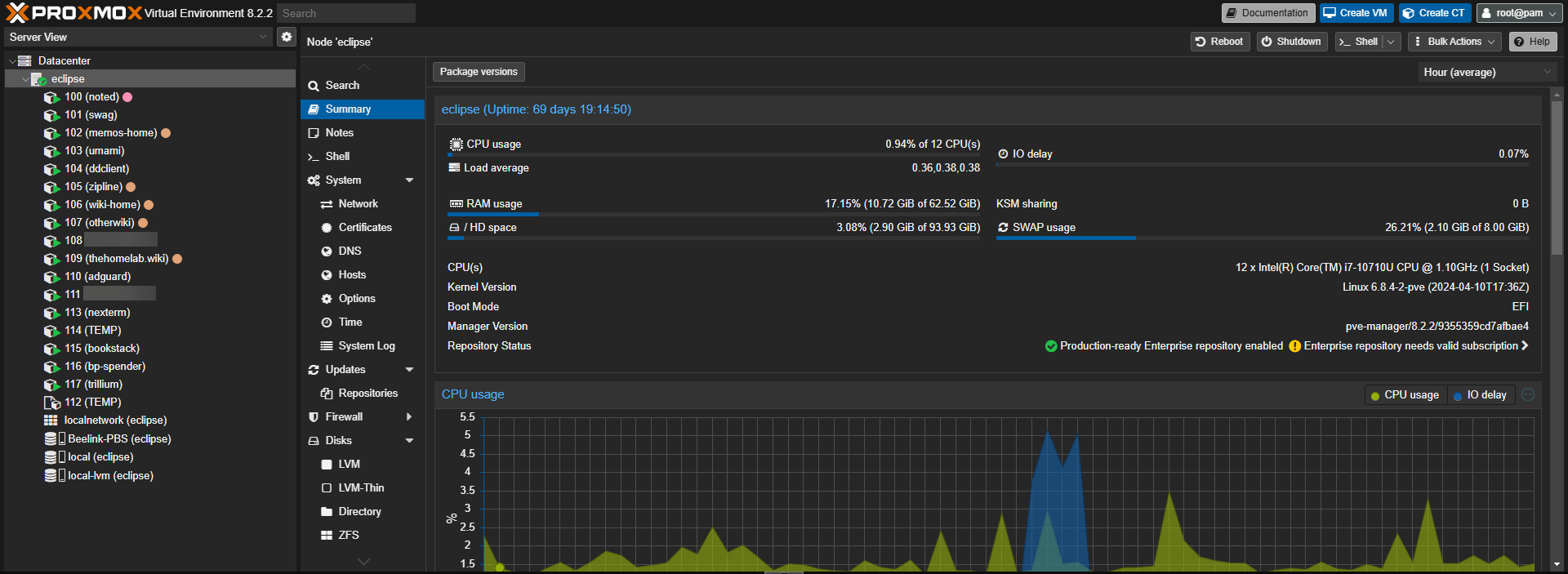
Portainer simplifies container operations by offering a single point of management for Docker containers, allowing users to easily start, stop, update, remove, and manage them in a centralized way.
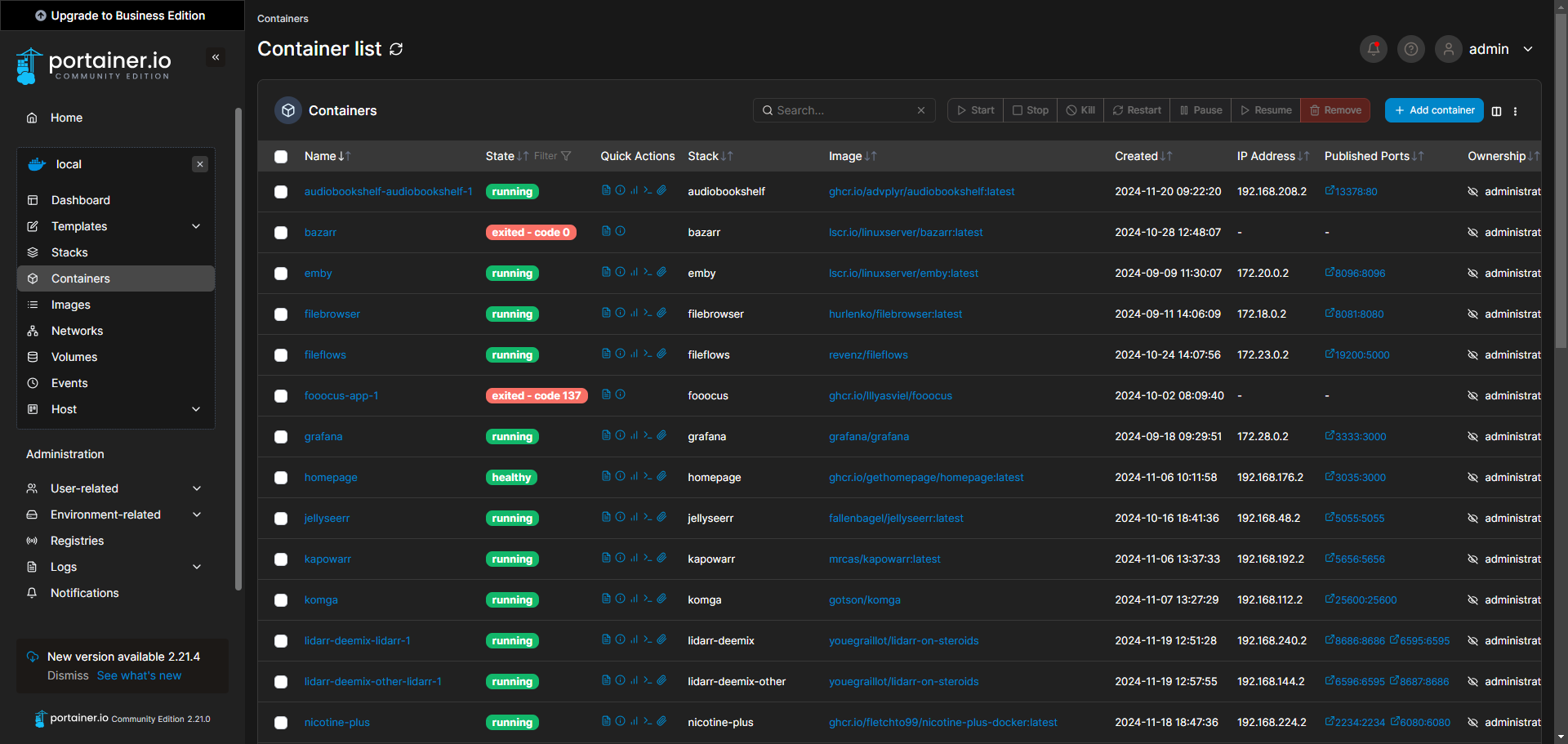
Homepage is my dashboard of choice this year. It helps keep my apps and services organized because lord knows I have way to many to remember.
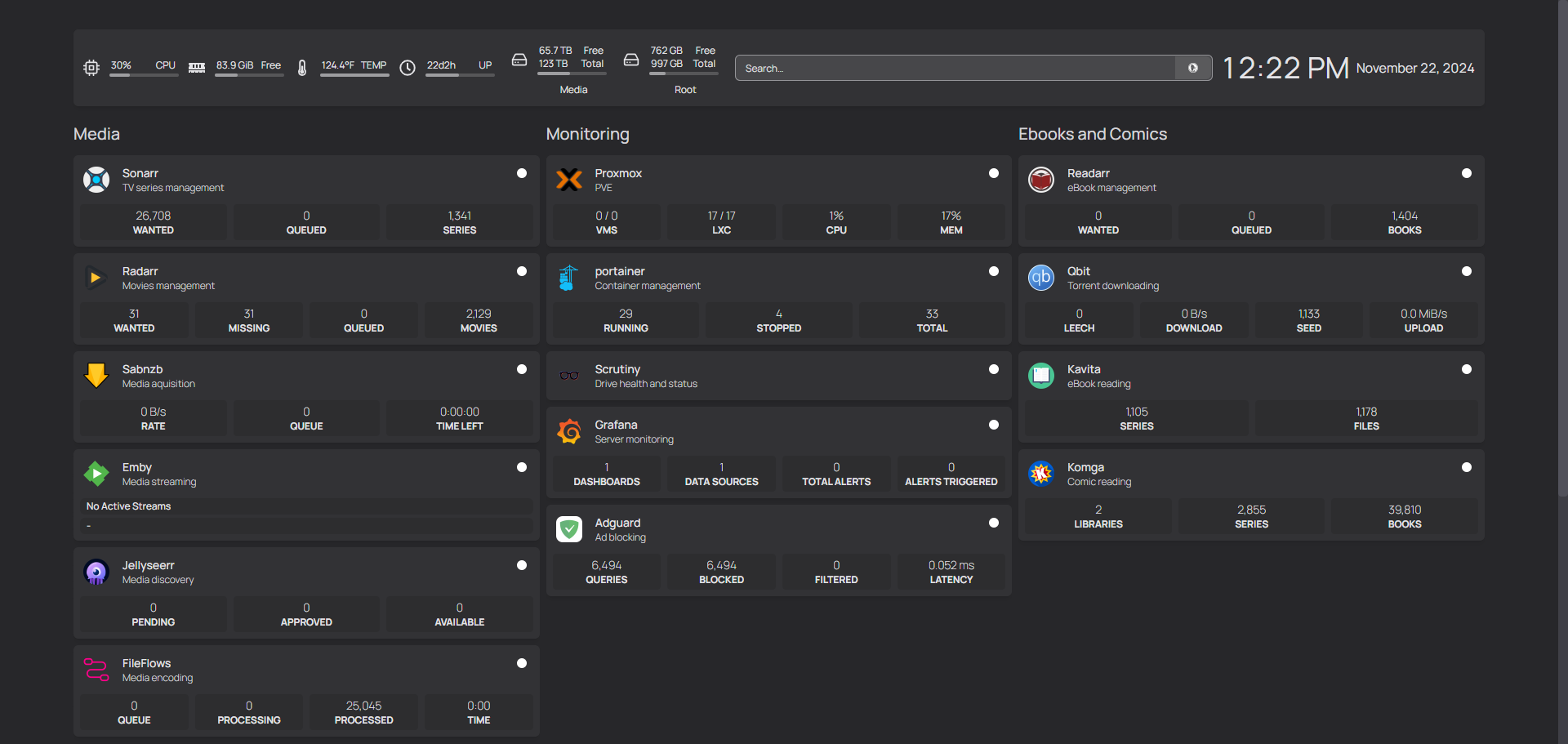
Paperless-ngx is what I use to scan important documents to manage. It keeps them organized and uses OCR to scan text in images and PDF files for easy searching of the docs and images. I can tag and label them as much as I wish. The only gripe I have about Paperless is the lack of folder hierarchy.
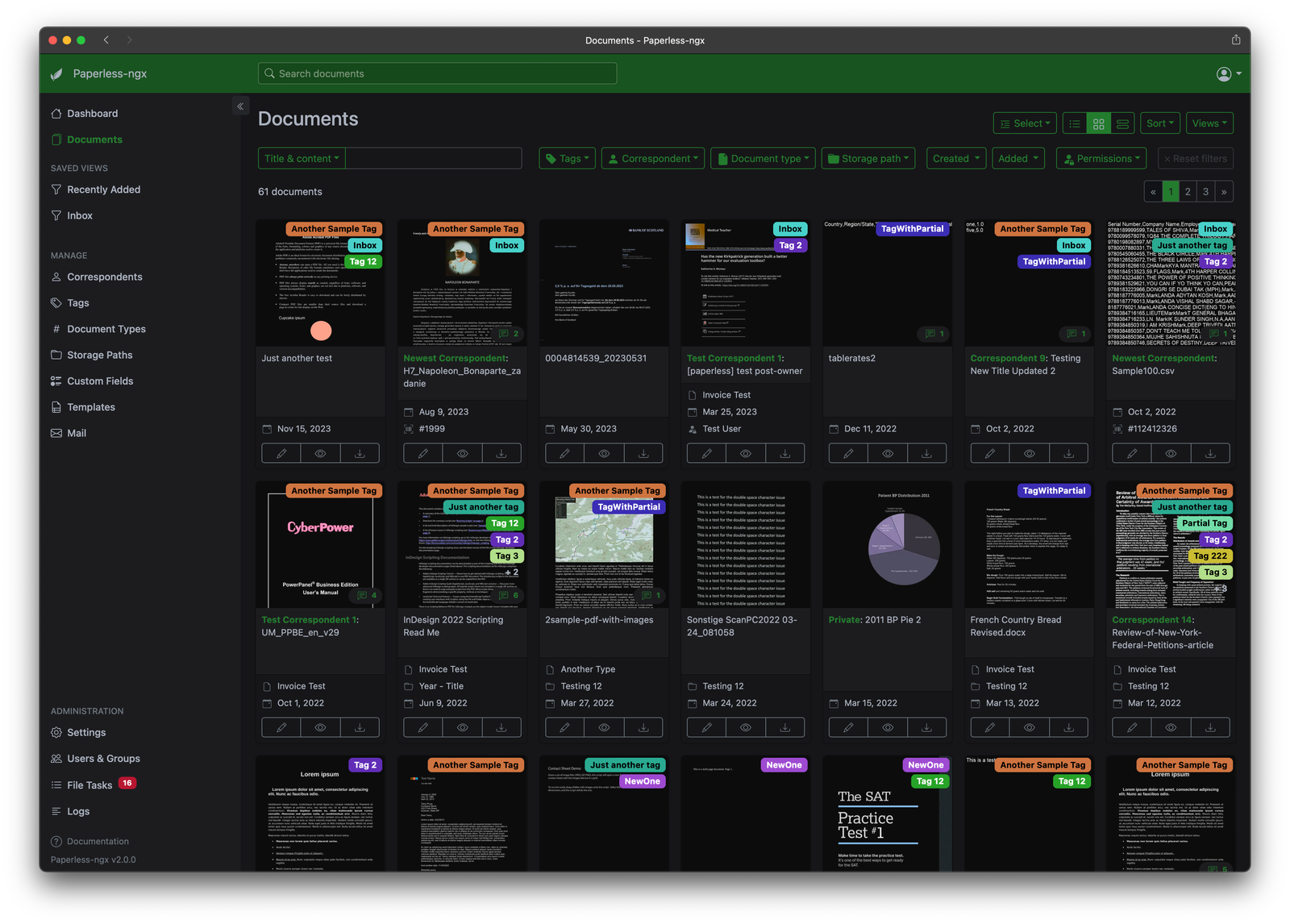
Bookstack is a self-hosted wiki platform where I keep all of my notes, configurations and other personal information I want to remember for later. I have been using Bookstack for roughly 5 years and it has been one of my most used self-hosted apps.
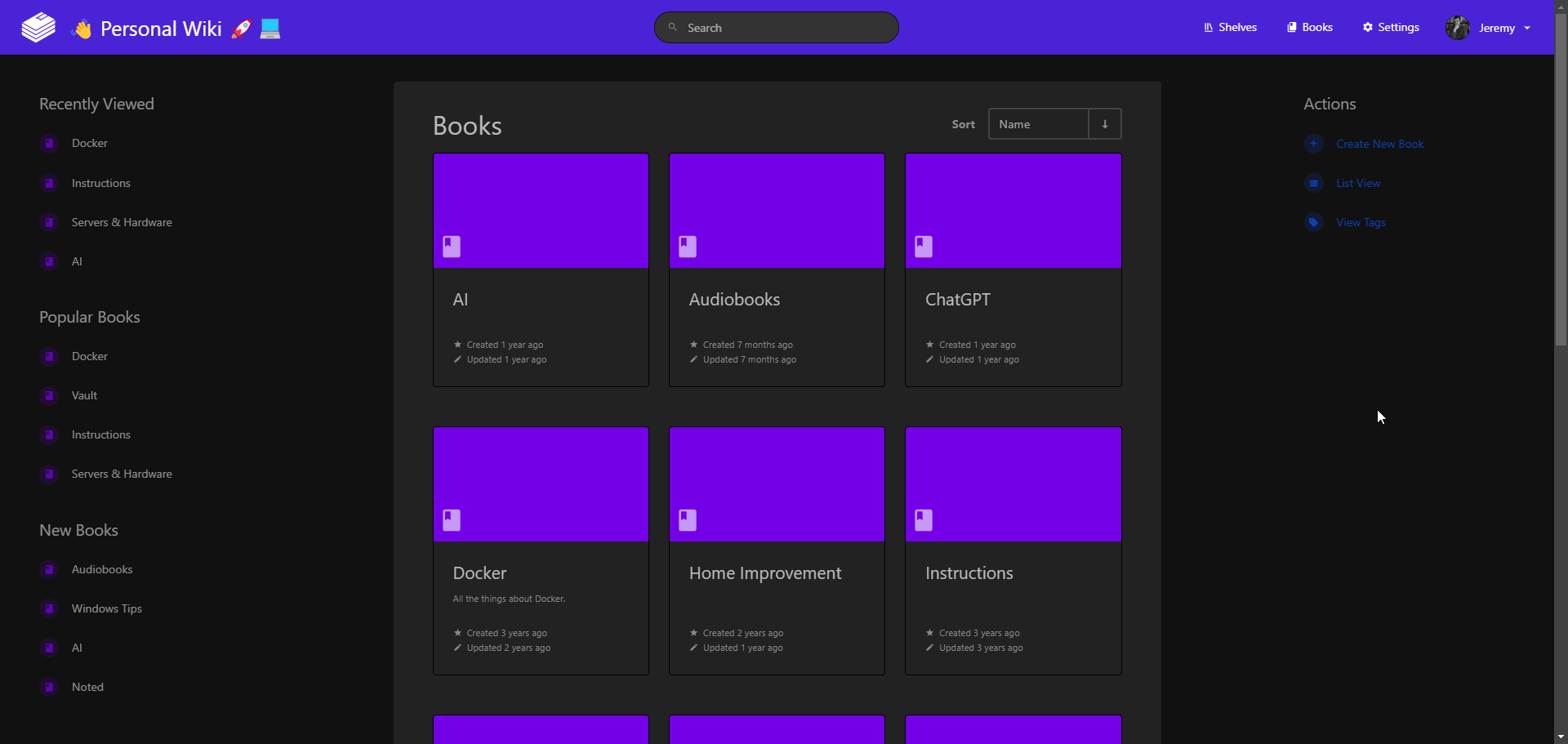
Pinchflat is what I use as my YouTube PVR. It downloads, organizes and will even remove videos that are older than a certain date! Just add a source and it will automatically download the channels you want. I use the "Media Center" preset so it displays the videos nicely in Emby just like a TV show!
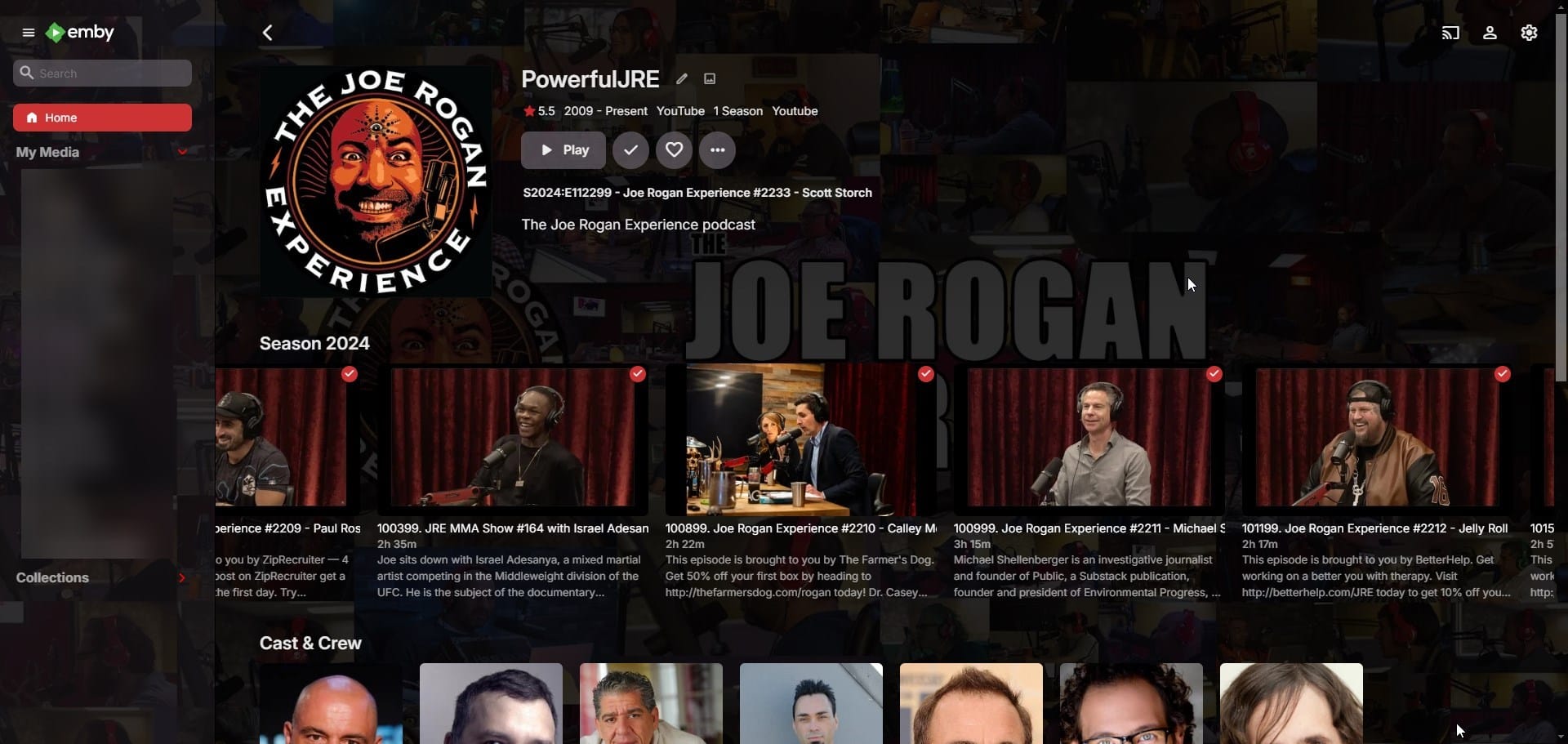
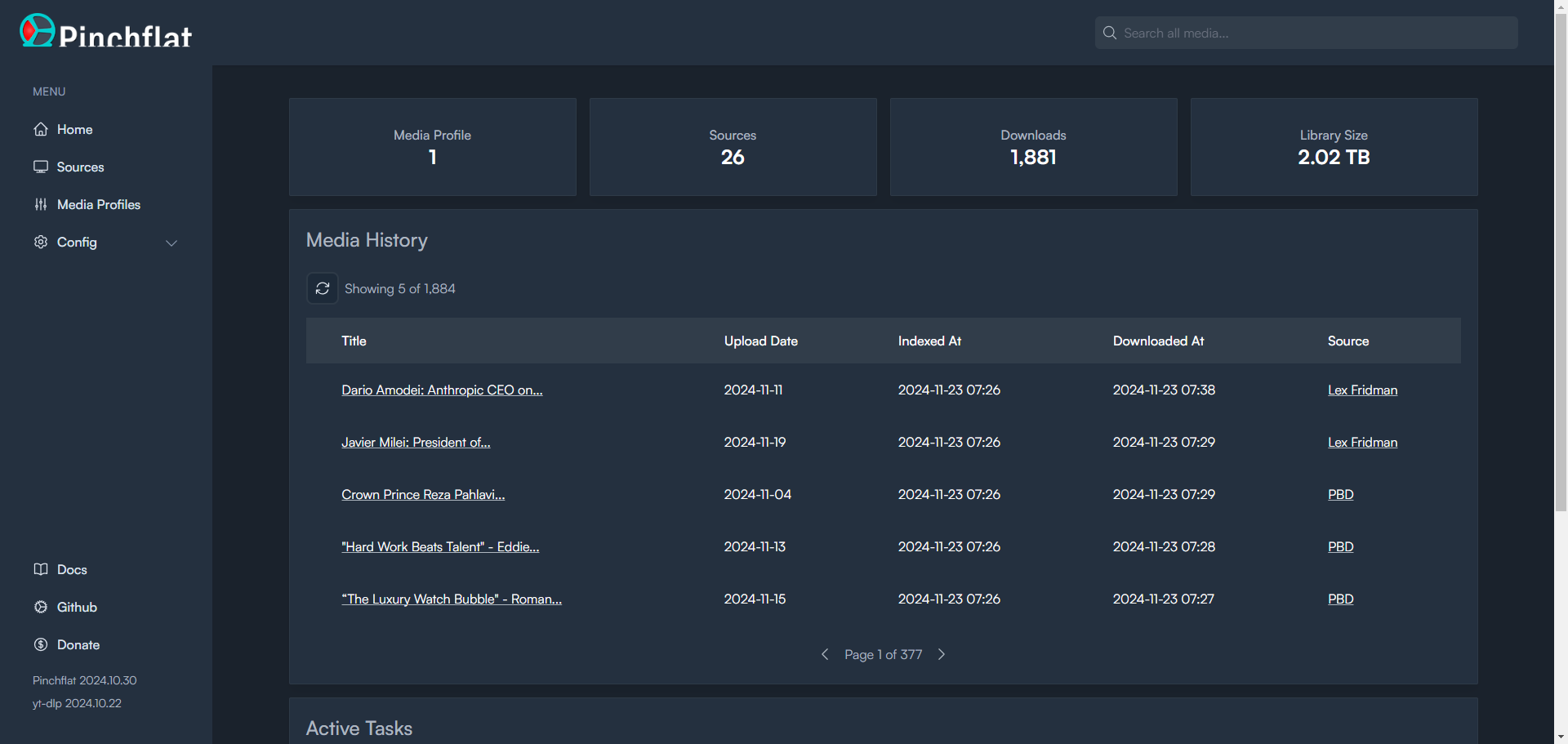
I'm a bit of a sentimental guy, and Usememos is my way of keeping track of the little things that matter most, reminders from loved ones, memories I want to hold onto forever or just silly selfies with reminders of things I did that day.

Ollama and Open WebUI allows you to run high-performance language models directly on local devices and gives users complete freedom to customize and optimize LLMs to suit their specific needs. Together with Open WebUI, you can easily chat with LLMs or Large Language Models to get answers to questions, learn a new language, learn how to code and much more.
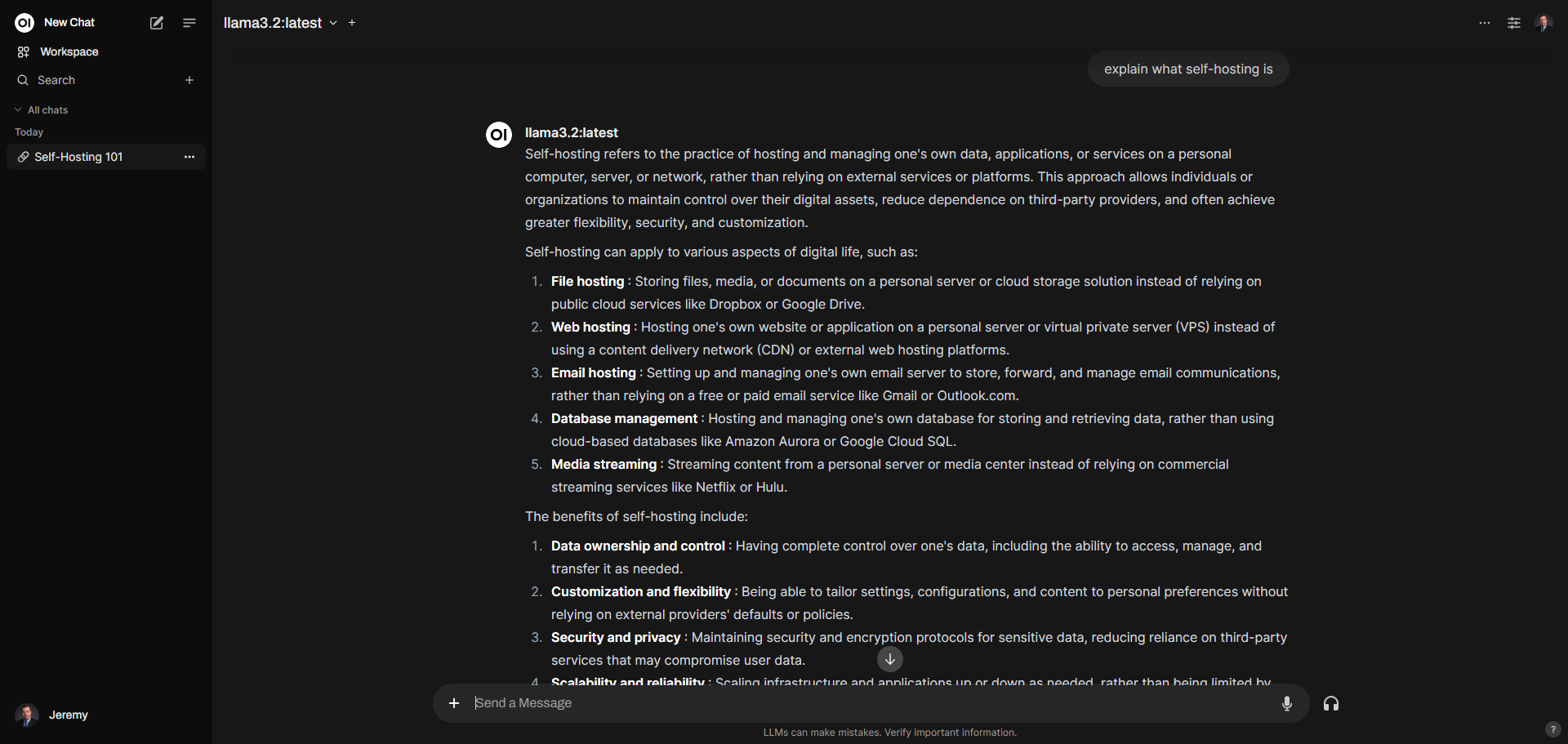
ShareX is an open-source app that enables users to capture screenshots and record video clips along with many more amazing tools. Zipline, provides an easy-to-use interface for sharing files across different devices or platforms. By integrating the settings of Zipline into ShareX, you can create custom configurations tailored to your needs.
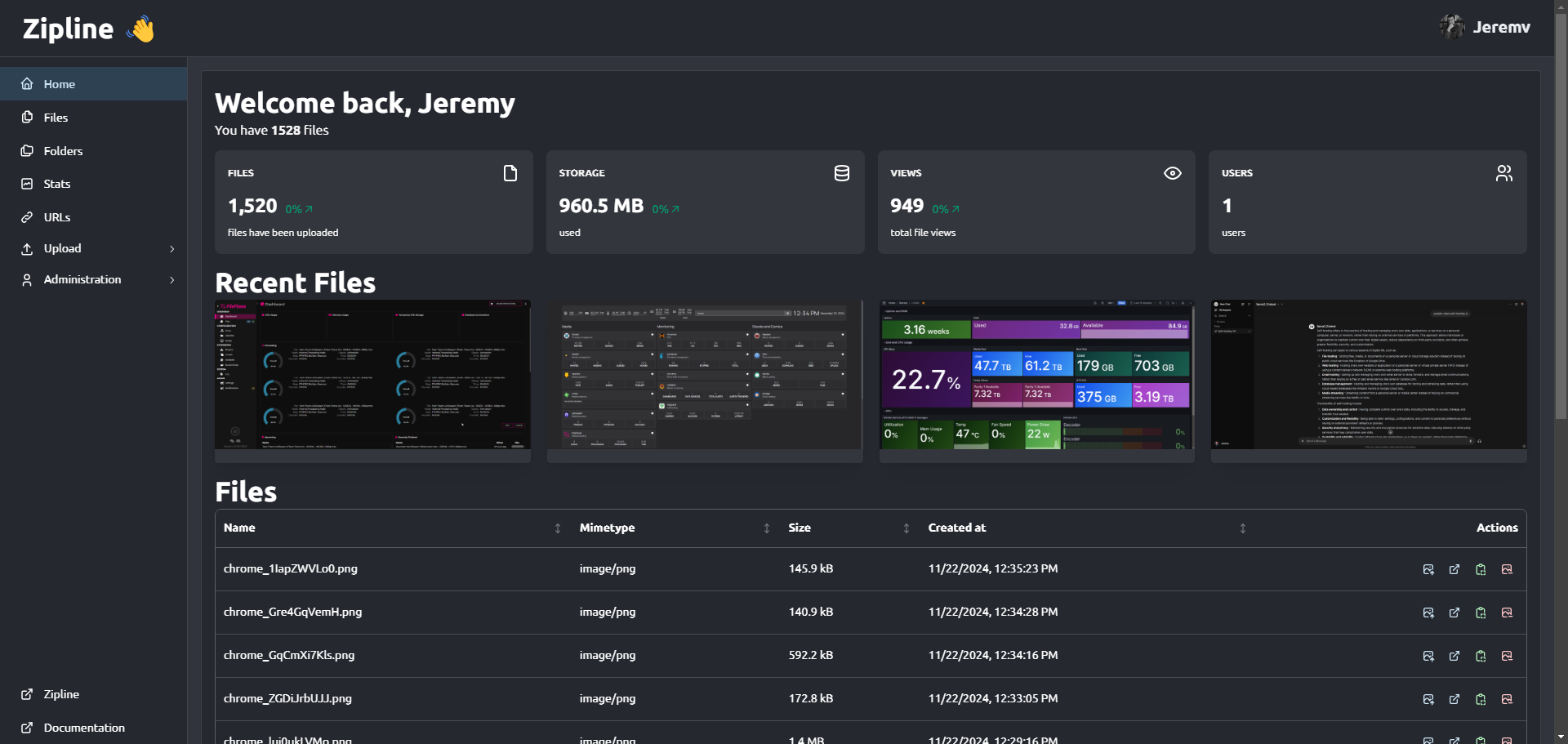
Nexterm is a self-hosted web terminal that lets you access and control your server from different devices. It has been improving over time with new features, but currently it mainly provides a simple way to log in and interact with your server through SSH credentials.
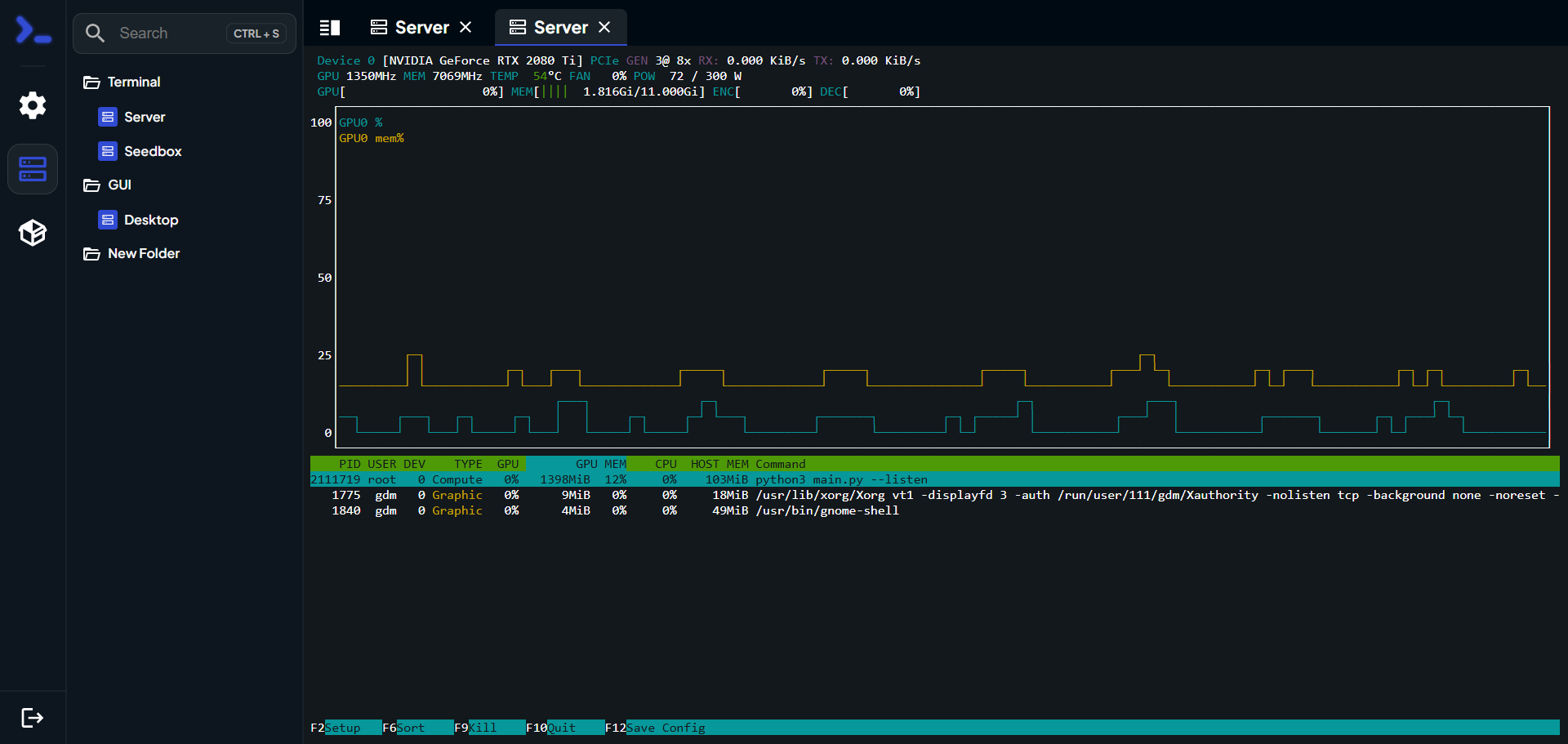
Grafana is a great way to see your system metrics at a glance. It may seem overwhelming to learn (and I have articles about setting it up) but it's worth the effort.
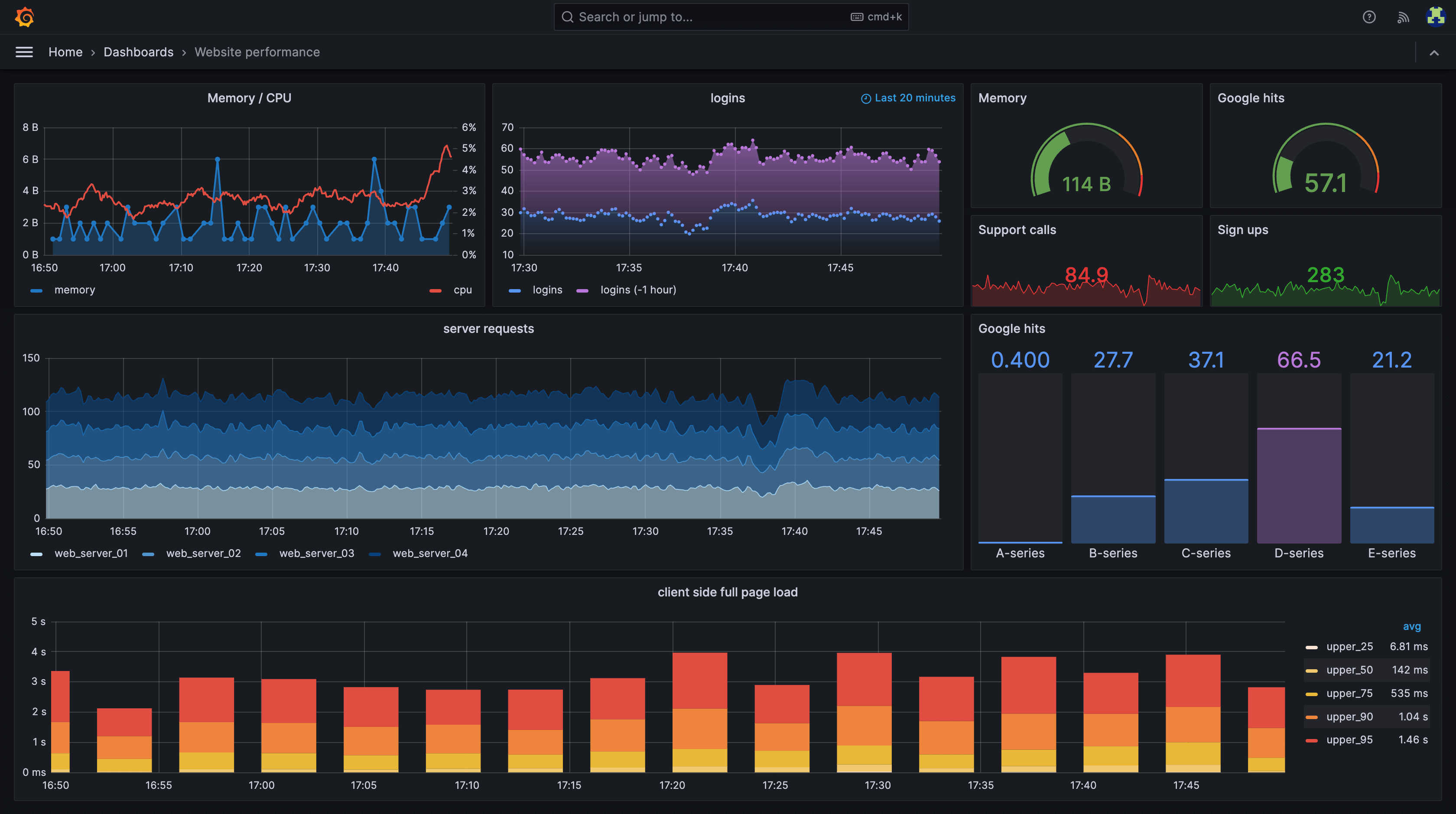
Scrutiny only has one job. It runs SMART scans on my server hard drives and provides a simple view of the health status of each drive.
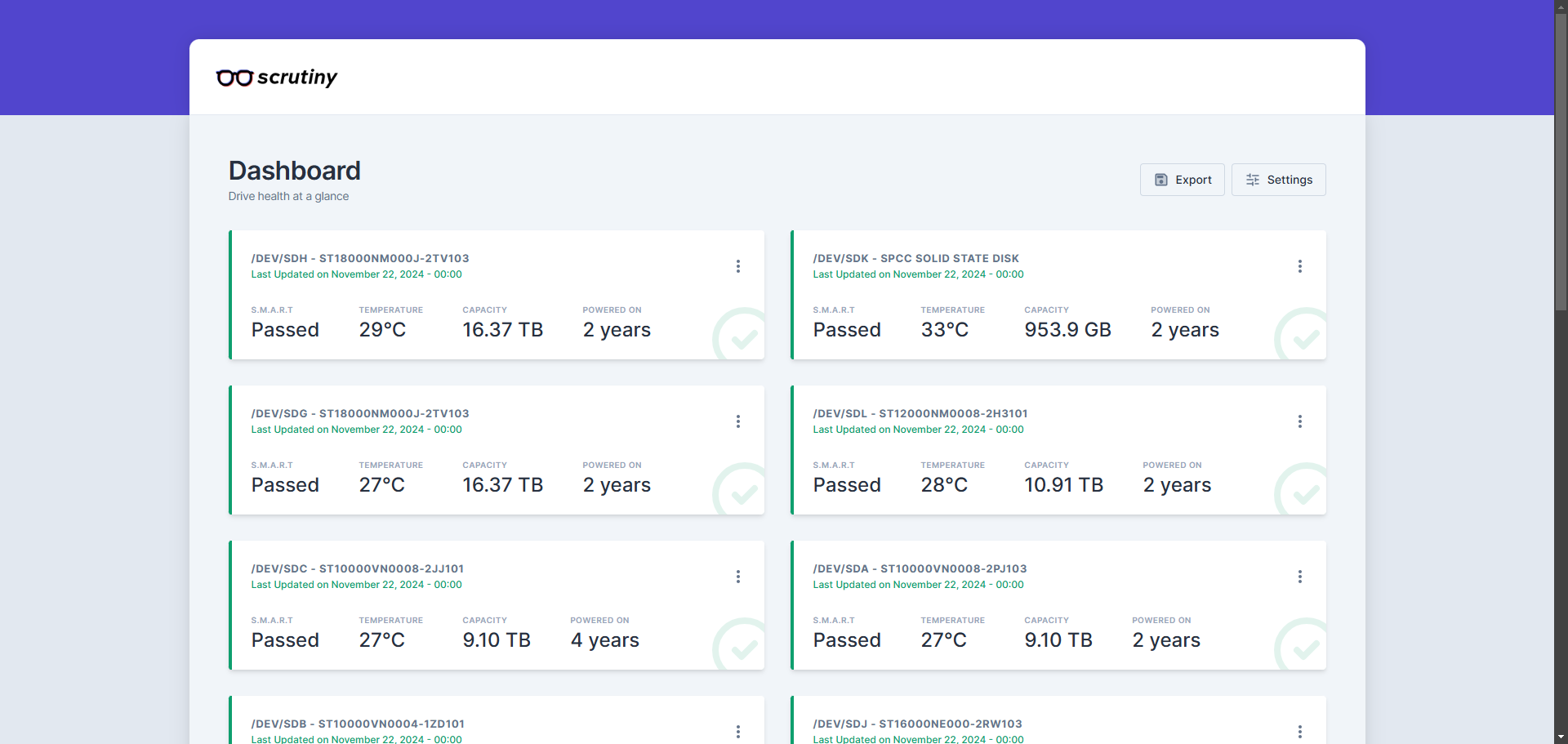
FileFlows has saved me tons of disk space by converting files to another container by using NVIDIA encoding. It condenses the file sizes down while maintaining a great quality in the end result. I have spent hours testing different quality settings and have provided my Flow in the article here on the site.
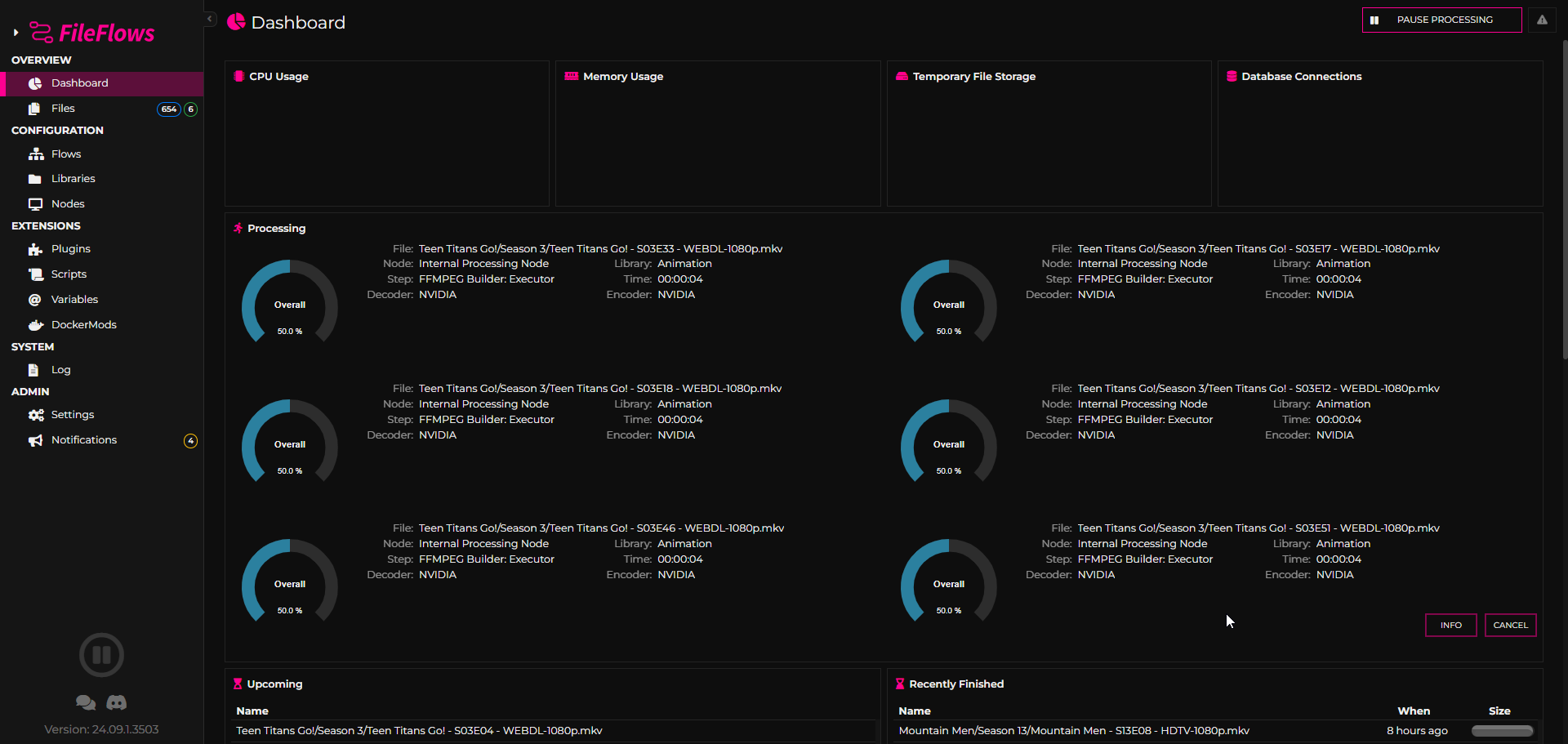
Romm is how I organize and browse the ROM collection I have. It also allows me to play the games in the browser using EmulatorJS! Only supported systems apply though for gameplay.

Audiobookshelf is what I use to catch up on podcasts... alright, I admit it, I horde podcasts. ABS can automatically download any podcast you subscribe to!
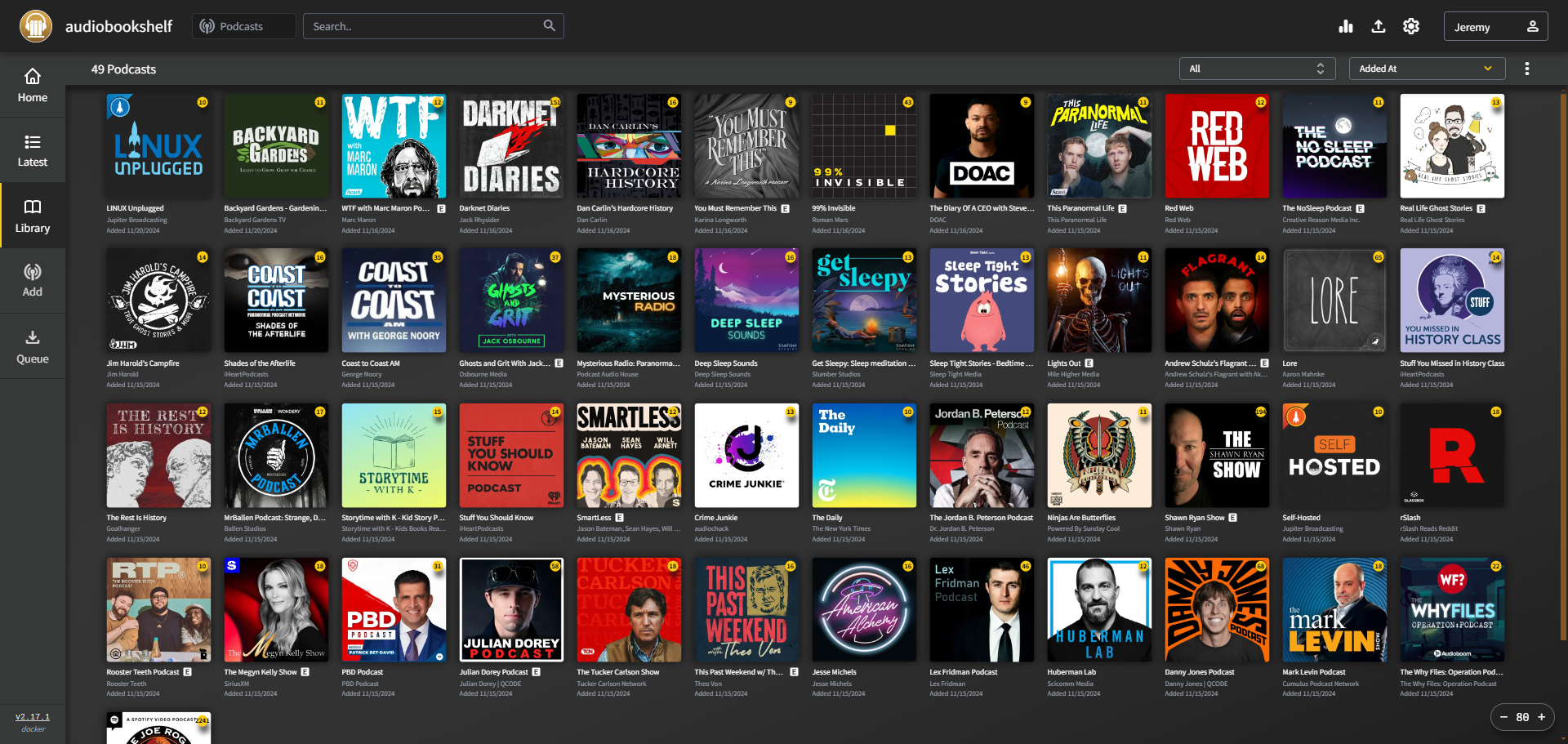
There's no way I'll ever get around to listening to all 8,195 hours of audio between every podcast. But, it's fun to have a variety of things to choose from.
Ghost is my favorite open-source blogging platform. If you didn't know already, Noted (this website) is running on Ghost in Docker as I mentioned before. Ghost is fast, easy to use and distraction free. I highly recommend it to anyone who wants to start a blog.
Final Notes and Thoughts
Another year in the books for self-hosting. There's so many more apps lined up for review that you may see on the list next year but for now, not much has changed.
What apps did you find this year and which are your favorites?


